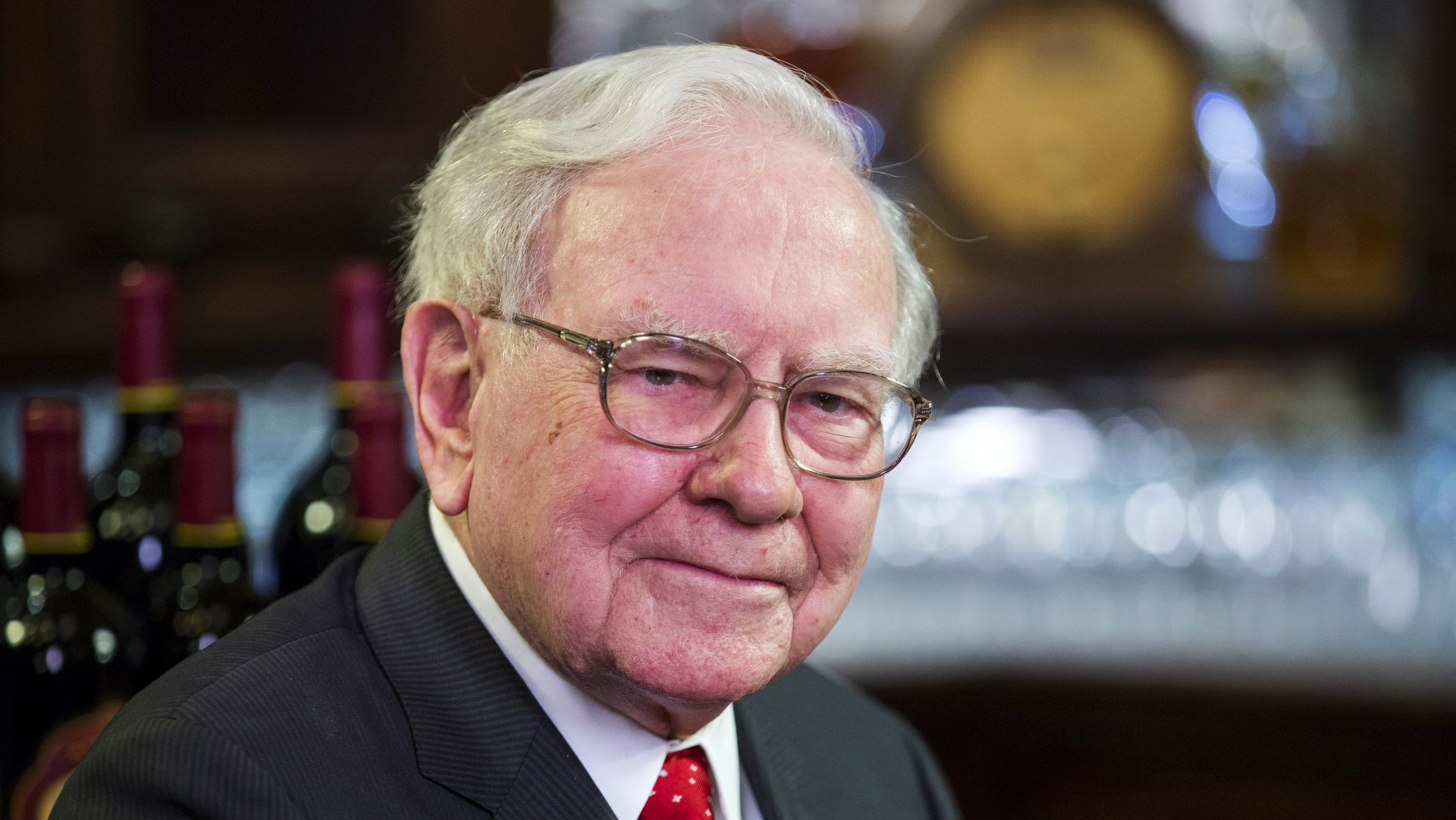Warren Buffett’s apocalyptic warning: “Innovation has its dark side”
Warren Buffett’s letter to Berkshire Hathaway shareholders just came out, and it holds some pretty dire predictions.


Warren Buffett’s letter to Berkshire Hathaway shareholders just came out, and it holds some pretty dire predictions.
The legendary US investor is now 85 years old, and there was speculation that he might drop hints about a successor in his highly anticipated annual letter. But Buffett made no mention of plans to hand over the reins. Instead, he used his letter to warn about a serious risk: A terror attack.
In the letter, released Saturday morning, Buffett said that his and other US businesses, were “powerless” against the threat of a successful cyber, biological, nuclear, or chemical attack on the United States. He expanded on this threat with sobering detail:
“What’s a small probability in a short period approaches certainty in the longer run. (If there is only one chance in thirty of an event occurring in a given year, the likelihood of it occurring at least once in a century is 96.6%.) The added bad news is that there will forever be people and organizations and perhaps even nations that would like to inflict maximum damage on our country. Their means of doing so have increased exponentially during my lifetime. “Innovation” has its dark side.
There is no way for American corporations or their investors to shed this risk. If an event occurs in the U.S. that leads to mass devastation, the value of all equity investments will almost certainly be decimated.
No one knows what “the day after” will look like. I think, however, that Einstein’s 1949 appraisal remains apt: “I know not with what weapons World War III will be fought, but World War IV will be fought with sticks and stones.”
Terrorism is not the only global threat discussed in the letter; Buffett also addresses the dangers of climate change. He considers the threat of global warming “highly likely” rather than “certain,” but describes any demand for total certainty as “foolish.”
“It would be foolish, however, for me or anyone to demand 100% proof of huge forthcoming damage to the world if that outcome seemed at all possible and if prompt action had even a small chance of thwarting the danger.
This issue bears a similarity to Pascal’s Wager on the Existence of God. Pascal, it may be recalled, argued that if there were only a tiny probability that God truly existed, it made sense to behave as if He did because the rewards could be infinite whereas the lack of belief risked eternal misery. Likewise, if there is only a 1% chance the planet is heading toward a truly major disaster and delay means passing a point of no return, inaction now is foolhardy. Call this Noah’s Law: If an ark may be essential for survival, begin building it today, no matter how cloudless the skies appear.”
Buffett notes that although climate change is a threat, it will not particularly impact insurance businesses, as policies are regularly repriced. Any increase in the threat from climate change would be reflected in higher premiums. Buffett adds:
“As a citizen, you may understandably find climate change keeping you up nights. As a homeowner in a low-lying area, you may wish to consider moving. But when you are thinking only as a shareholder of a major insurer, climate change should not be on your list of worries.”
It wasn’t all doom and gloom, however. Berkshire Hathaway had another record year, with a 32% increase in net income to $5.48 billion. That said, some of the company’s largest holdings have not performed so well, as Fortune notes. Berkshire increased its ownership of IBM last year, and the 81 million shares the company owns is now worth $11.2 billion, compared to $13.8 billion when they were first bought.
There continues to be debate about whether Buffett has lost his investing touch. But, for now, it looks like the Berkshire chairman and chief executive will be sticking around through the risks ahead.